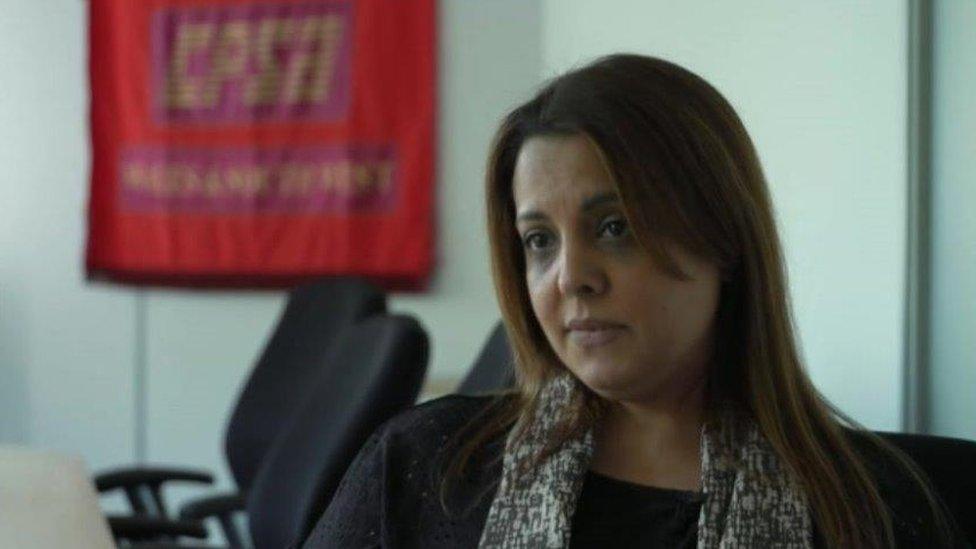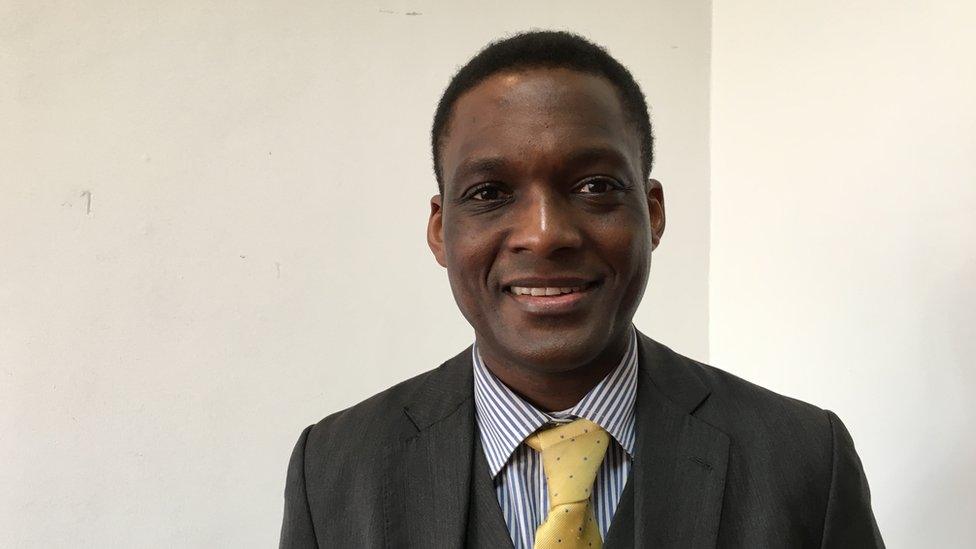BAME positive discrimination 'needed when hiring for jobs'
- Published
Positive discrimination in favour of black and ethnic minority women applying for jobs is needed in Wales, a union boss has said.
Figures suggest black and minority ethnic (BAME) women in Wales are much more likely to be unemployed than their white counterparts.
Positive discrimination is currently illegal under the Equality Act 2010.
But Shavanah Taj, Wales' first Muslim woman to lead a union, said: "How else is change ever going to come?"
Ms Taj - head of the PCS trade union in Wales - said organisations also needed to look at progressing BAME employees up the career ladder.
"Positive discrimination should not be a dirty word. Where are [BAME women]? They're not in the boardrooms, they're not on the boards of organisations. There are no BAME women assembly members.
"It's not that people are incapable or don't have the training or skill set, but there's clearly some barriers that we've got to overcome."

Shavanah Taj is Wales' first Muslim woman to lead a trade union
Ms Taj felt she had to leave Wales to get experience in London to rise to the top: "The research has been done… When it comes to race equality in Wales we drop the ball, we need to pick it up and we need to run."
Dr Hade Turkmen, who has written a report for equality charity Chwarae Teg, said the voices of BAME women were often forgotten during decision-making because they are not represented at the top of business and government.
She also argued job applications should be anonymous: "If you leave your name on the CV or application process there is a risk that you are not even shortlisted because your name gives your background , ethnic background, religion."
'You don't want to be outcast'
Youth employment worker Jaffrin Khan, from Cardiff, took the step of changing her surname to Karl on her third attempt applying for a department store job.
She corrected the surname during her interview and said she was verbally offered the job.
But when her offer was processed, she was told they had "run out of contracts".
After calling HR to ask what had happened, she was eventually given a contract.
"I couldn't tell you if that was just a coincidence or not. I think that's the worst part about being a woman of colour - you don't want to victimise yourself in every single instance because… you don't want to be outcast from anything because you speak too loudly."

Dr Hade Turkmen said barriers to work such as childcare are "severely experienced" by BAME women
BAME people make up 5% of the Welsh population, although the figure is higher in cities including Cardiff (18.4%), Swansea (9.5%) and Newport (8.8%).
Unemployed people are those who do not have a job, but are actively looking for work.
Figures from the Office for National Statistics' annual population survey for July 2017-July 2018, showed BAME women were more likely to be "economically inactive" than white women, meaning they do not have a paid job, including caring for others or studying full-time.
Dr Turkmen added: "Childcare and caring responsibilities are a big barrier for women and are severely experienced by BAME women day to day. We have to tackle these general barriers."

Positive discrimination v positive action
Positive discrimination - treating one person more favourably because they have a "protected characteristic" such as race or sex - unless there is an occupational requirement, is unlawful, but it is allowed in cases of disability.
However, employers are allowed to take "positive action" to support those from under-represented groups.
According to the Equality and Human Rights Commission, external, this means an employer can encourage people from those groups to apply for jobs.
It can also be used in "tie-break" decisions when an employer has "a choice between two candidates who are as qualified as each other".
- Published27 June 2019

- Published7 January 2018

- Attribution
- Published10 May 2018
